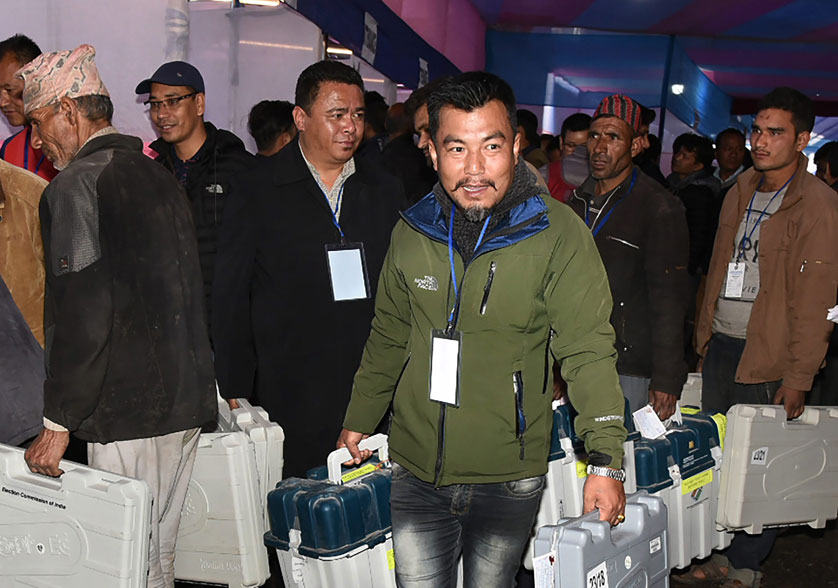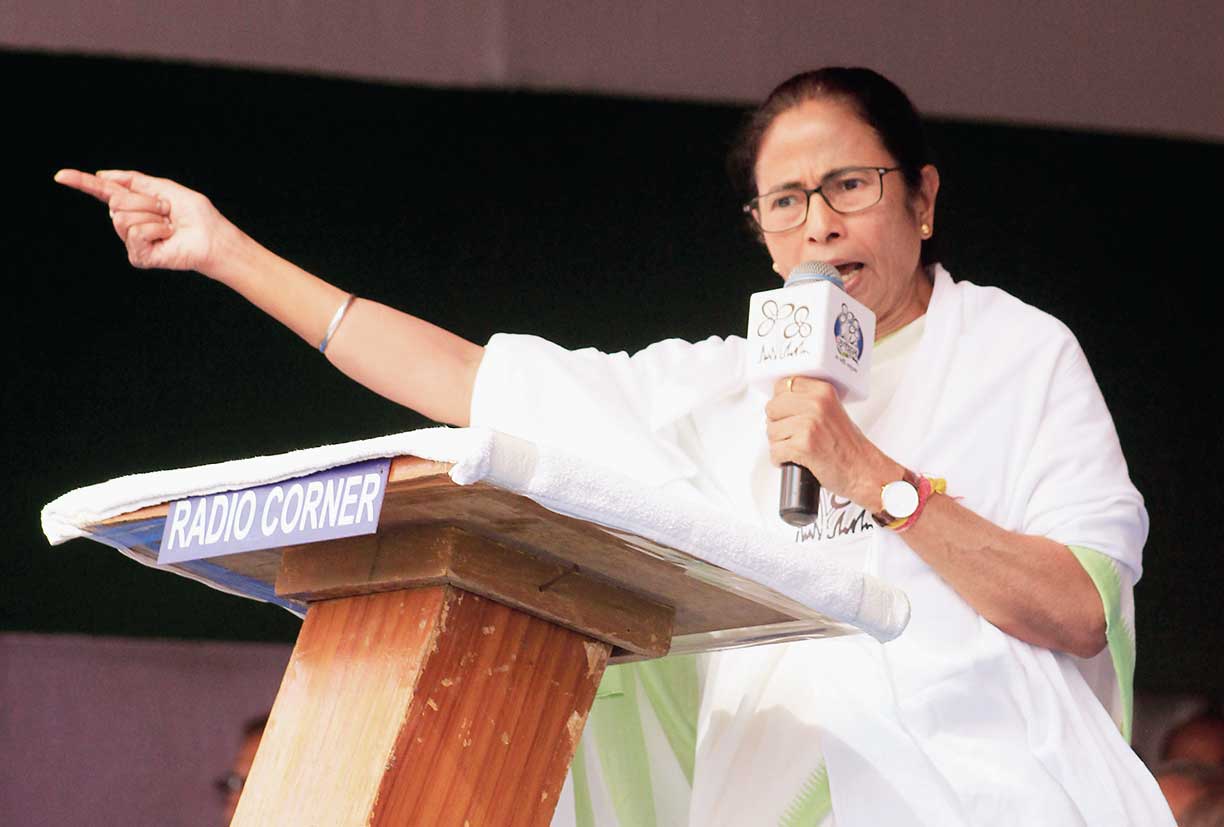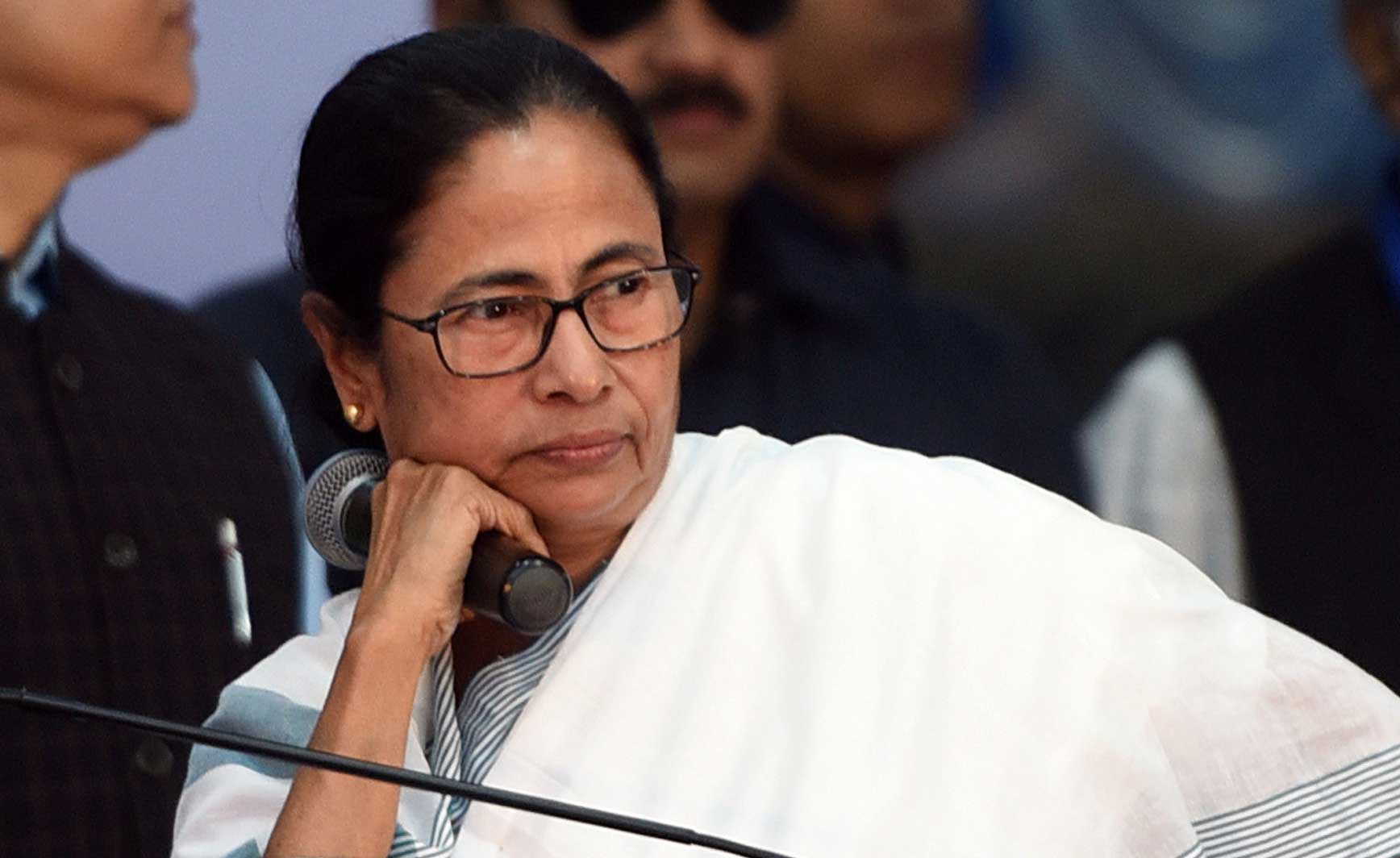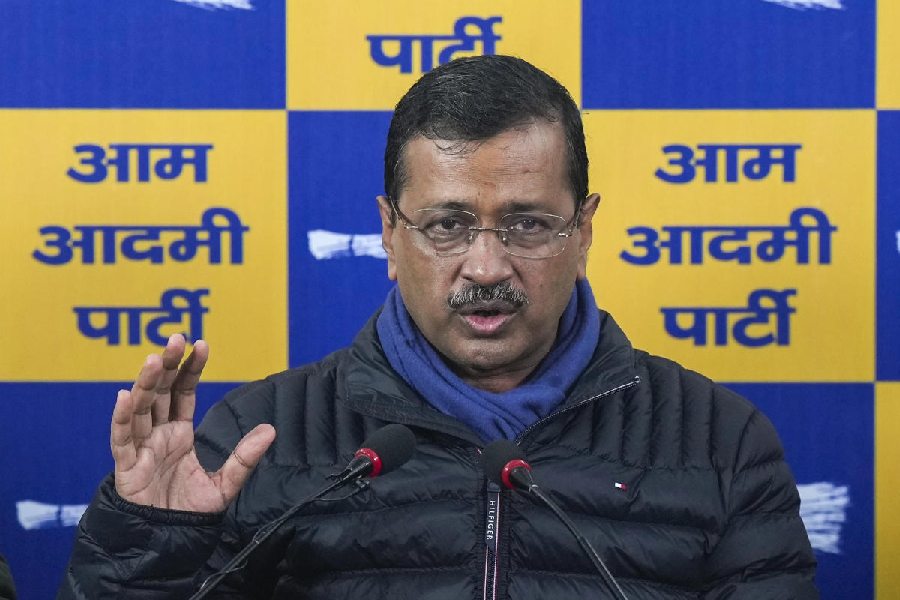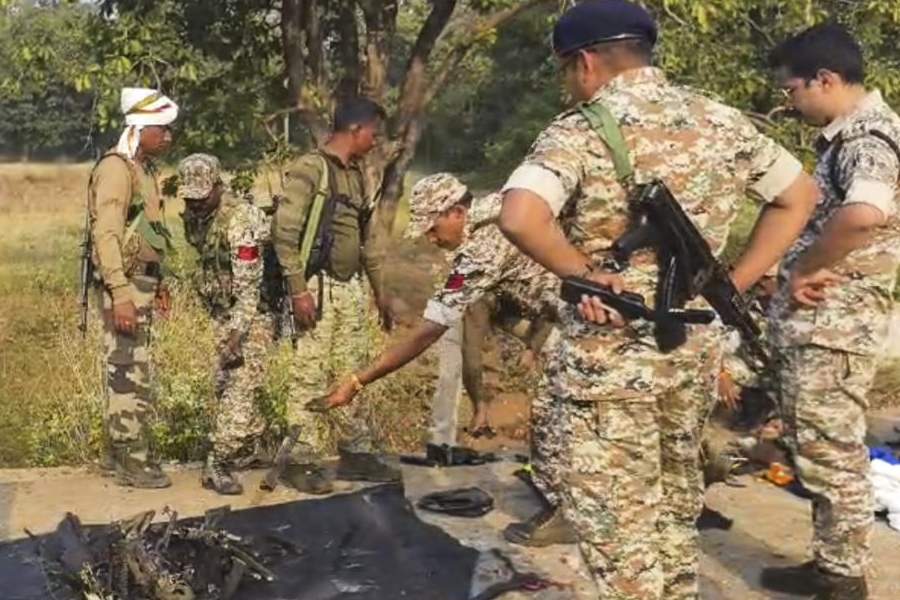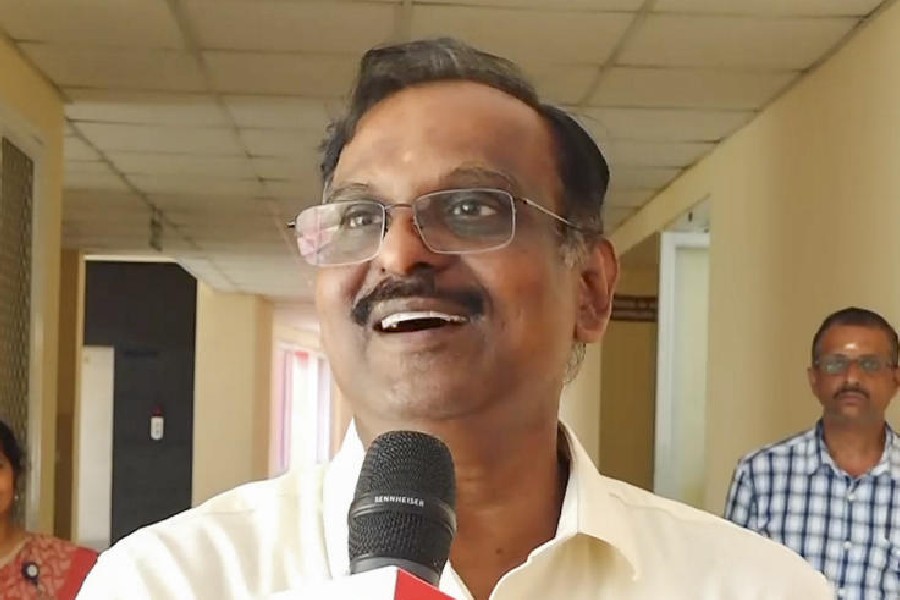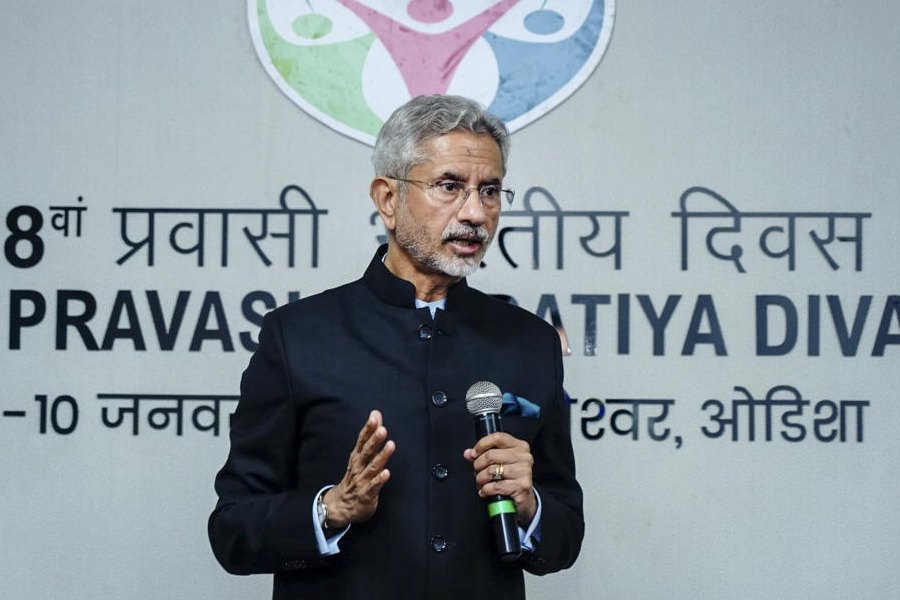The Morcha-Trinamul combine is highlighting the issue of land rights, another long-standing demand, to spin a counter-narrative.
“Around 80 per cent people in the hills don’t have land rights… We are saying, your land is your identity. A fresh survey has already started to settle this issue,” said Thapa.
The potency of the issue became clear in 2017 when Trinamul won in the civic polls in Mirik by promising land rights. Not just land rights, the Trinamul-Morcha camp is also highlighting how the Gorkhaland Territorial Administration, headed by Tamang, has been delivering development in the hills.
The change in the command structure of the Morcha — from Gurung to Tamang and Thapa — and return of peace in the hills is also being highlighted in campaign meetings of Rai, a respected academician.
Several businessmen in the three hill segments admitted in private they preferred a Trinamul MP. “I want a BJP government in the Centre, but Didi’s party in Darjeeling for the sake of my business,” said one of them, explaining that they wanted a Trinamul MP as it reduced the possibilities of violent protests, which became a trademark of Gurung’s politics.
“We have deleted Bimal Gurung from the hills,” claimed Thapa.
According to him, the 104-day strike — following Gurung’s call — convinced the hill residents that such disruptive forms of protest were against their own interest.
“People are responding to our logic over their sentiment. Compare the crowd at our meetings with that in their programmes,” said Thapa as the band of boys surrounding him exploded in applause.
Unlike the boisterous members of the Rai camp, Bista’s backers have been discreet. Several ordinary citizens confided that they had attended campaign meetings of Rai and avoided BJP programmes to avoid any backlash, but would vote for Gorkha unity on poll day.
Using the Gorkha unity card, the Bista camp has been communicating with expatriates from the hills to come and vote. “I was among 64 people who came from Kathmandu in chartered buses on Monday… People from other countries and other Indian states are also coming. This battle is very important for us and we are going about it silently,” said an expatriate hotelier.
This silent regrouping is the biggest challenge that Rai faces.
Darjeeling votes today
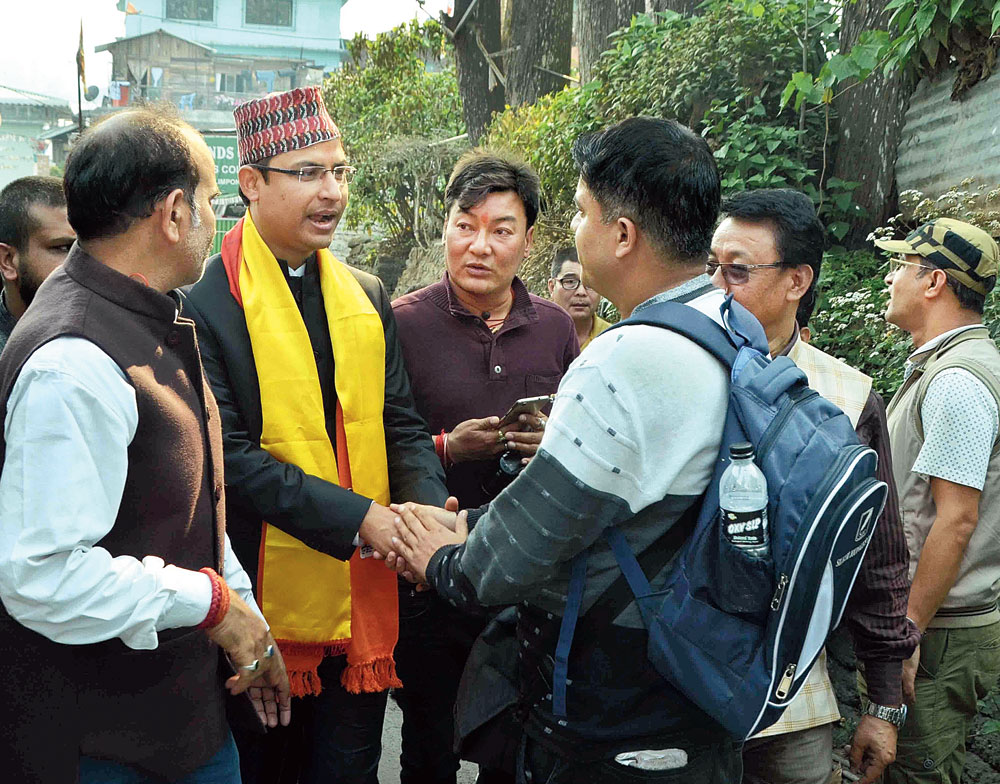
BJP candidate Raju Bista campaigning in the hills Telegraph picture
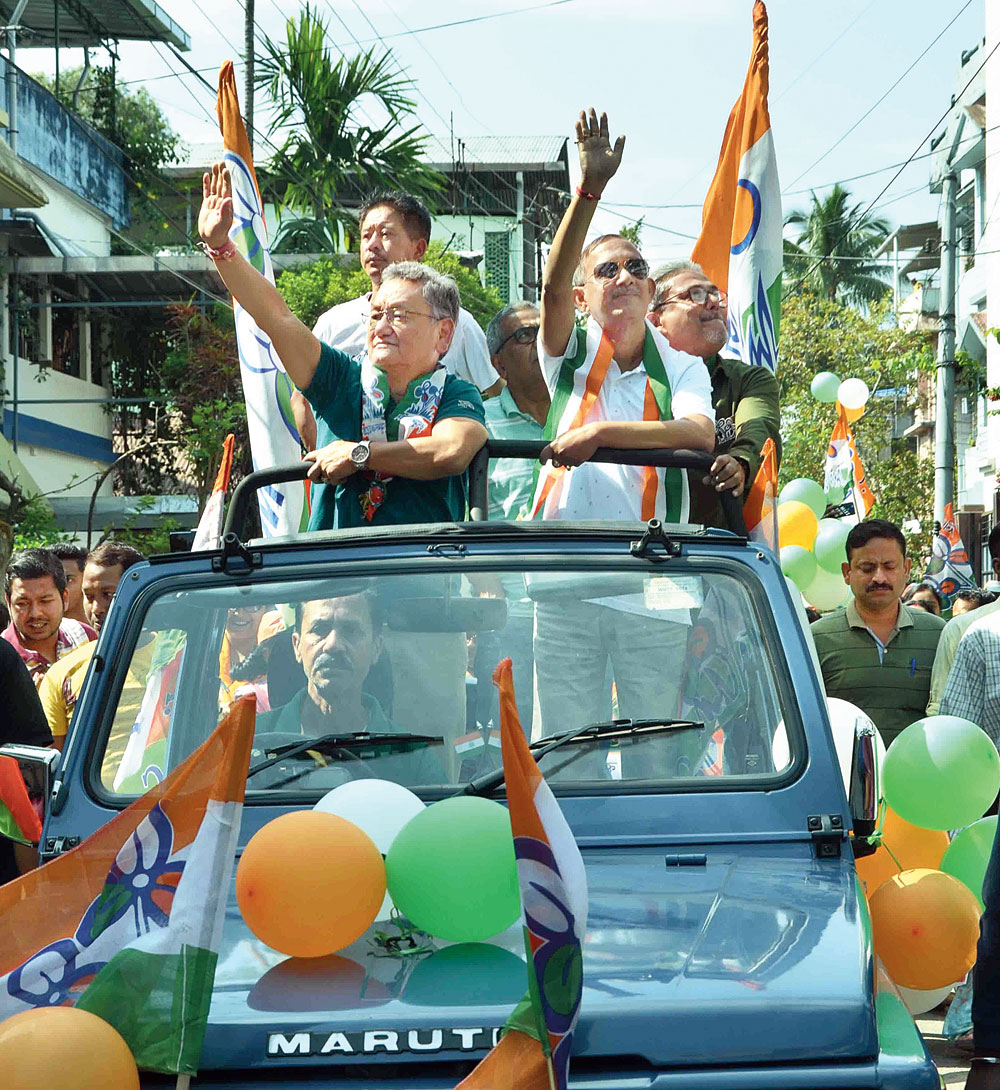
Trinamul candidate Amar Singh Rai campaigns in the hills Telegraph picture
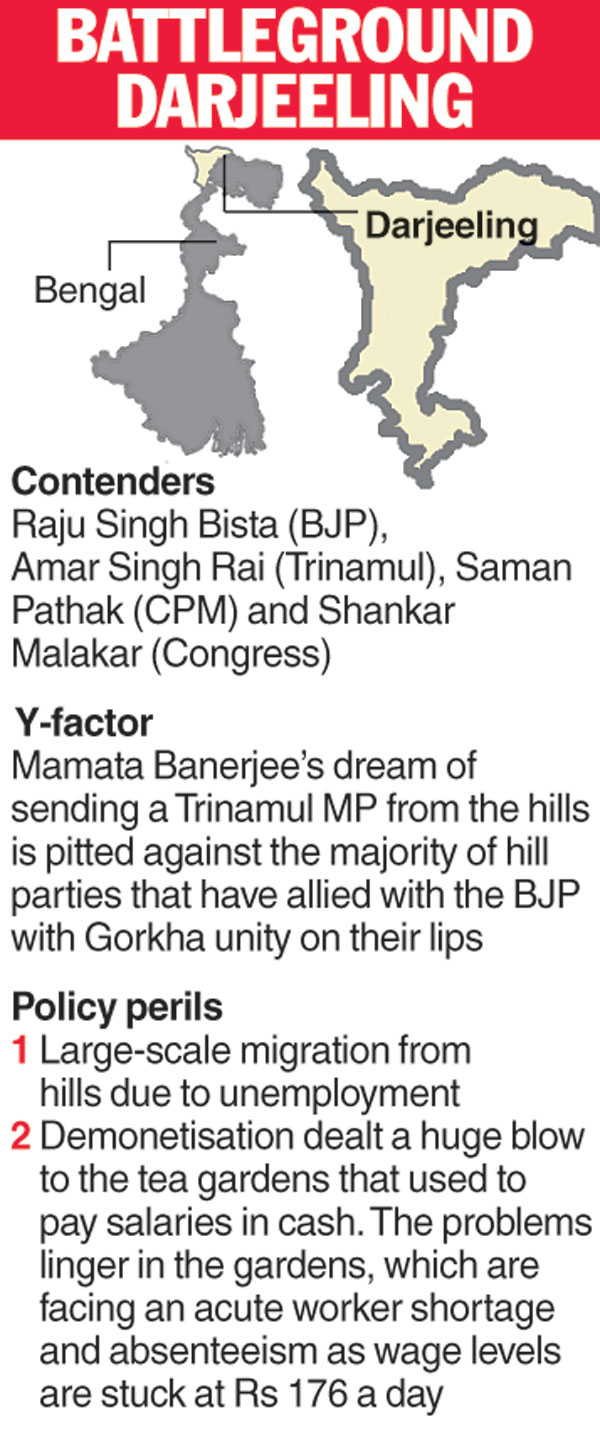
The Telegraph
It’s harvesting time in Darjeeling. The plucking of the delicate first flush variety of tea leaves — that produces what’s referred to as the champagne of teas — is in the last phase while the picking has started for the stronger second flush variety in some gardens.
There is also another harvesting that’s underway this spring-summer. “I have spent 18 years in this region… But I have never seen a contest like this,” said the manager of a tea garden, referring to the stiff fight for Darjeeling as political opponents try to harvest votes.
Over 16 lakh people — spread over three hill constituencies (Darjeeling, Kalimpong and Kurseong) and four Assembly segments in the plains (Siliguri, Matigara-Naxalbari, Phansidewa and Chopra) — are expected to head to the polling stations on Thursday to elect their next representative in Parliament.
It will be the first opportunity for the hill residents to cast their votes since the 2017 unrest — over the demand for a separate state of Gorkhaland — that resulted in a 104-day strike and claimed 11 lives.
The hill station has a history of political turmoil, but ahead of the polls, there is a strange silence as no one is keen to talk. “People will vote and you will know the outcome on May 23,” said a young unemployed man, who repeatedly requested anonymity.
Sitting in his plush white-themed office-cum-home at the rear end of Glenary’s, the famed eatery’s owner Ajoy Edwards blamed the ruling Trinamul Congress for the “different behaviour” of the hill people.
“There is fear in the air because of the Trinamul and the administration is using arrest and other coercive methods to deal with any form of dissent,” said Edwards, also a steering committee member of the Gorkha National Liberation Front.
Such allegations of arrests on false charges reverberate around the hills, which has seen a steady exodus of youths in the last two years or so. As unemployment or under-employment is another problem, youths from the hills have been leaving Darjeeling in droves.
Against this backdrop, restoration of democracy and a new deal for the youths have become the talking points for the GNLF, which has suddenly become a key player. Last month, the GNLF stitched together a surprise alliance with the now marginalised Bimal Gurung faction of the Gorkha Janmukti Morcha (GJM) and lent its support to the BJP’s Darjeeling candidate, Raju Singh Bista.
Several other smaller political and apolitical outfits also rallied around the BJP, which has a direct fight with Trinamul this time, though the Congress and the Left nominees are also in the fray.
Unlike the two previous Lok Sabha polls, no prominent BJP leader has spoken on statehood, the most emotive issue in the hills. Its manifesto has a mere pledge to look into a “permanent political solution to the issue of Darjeeling Hills, Siliguri Terai and Dooars region”.
But most hill parties — other than the Binay Tamang faction of the Morcha — are willing to gloss over the BJP’s silence on Gorkhaland and failure of two successive MPs from the party in delivering on the demand.
“This election is about Gorkha unity against Trinamul… This is about our sentiment and spirit,” said Edwards.
The new narrative of Gorkha unity — that can be heard across the hills, be it in fugitive Morcha leader Gurung’s backyard in rural Tukvar valley or in tourist hotpots of Darjeeling or Kalimpong — has become the lone weapon for BJP candidate Bista, a Manipuri Gorkha with little or no acquaintance with the constituency.
Bista’s poll managers are hopeful that the sympathy for Gurung, who has been on the run since the protests, and the anger with the Trinamul for its “tyranny” would reinforce Gorkha unity and see him through.
But while Gorkha sentiment is a reality in the hills, the poll arithmetic is not as simple.
Bista’s main opponent Amar Singh Rai, a Morcha legislator contesting on a Trinamul symbol, is miles ahead in terms of organisational might. “Ask them whether they can provide polling agents in 1,800-plus booths across the constituency?” asked Anit Thapa, general secretary, Morcha (Binay camp), after leading a sudden show-of-strength rally in Darjeeling town.
As Trinamul has a strong presence in the constituencies of the plains — especially in minority-dominated Chopra — the Rai camp is not giving much credence to the “sentiment” factor that Bista backers are banking on.
“The demand for a separate state is in our hearts, but what has the BJP done other than promising?” said Thapa. “The main question is that of identity and Bengal chief minister Mamata Banerjee has promised to address it,” he added.

